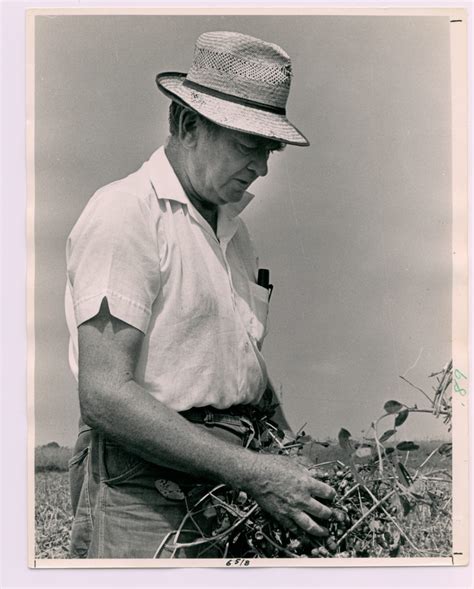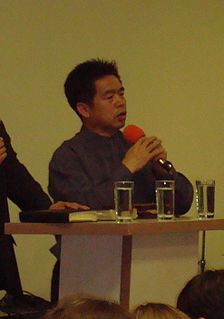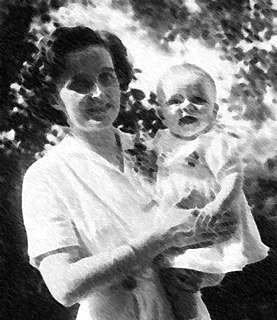A Quote by Pope Francis
Jesus tells us what the 'protocol' is, on which we will be judged. It is the one we read in chapter 25 of Matthew's Gospel: I was hungry, I was thirsty, I was in prison, I was sick, I was naked and you helped me, clothed me, visited me, took care of me. Whenever we do this to one of our brothers, we do this to Jesus. Caring for our neighbor; for those who are poor, who suffer in body and in soul, for those who are in need. This is the touchstone.
Related Quotes
The resurrection of Jesus was simply God's unwillingness to take our 'no' for an answer. He raised Jesus, not as an invitation to us to come to heaven when we die, but as a declaration that he himself has now established permanent, eternal residence here on earth. He is standing beside us, strengthening us in this life. The good news of the resurrection of Jesus is not that we shall die and go home to be with him, but that he has risen and comes home with us, bringing all his hungry, naked, thirsty, sick prisoner brothers with him.
At the final day the Savior will not ask about the nature of our callings. He will not inquire about our material possessions or fame. He will ask if we ministered to the sick, gave food and drink to the hungry, visited those in prison, or gave succor to the weak. When we reach out to assist the least of Heavenly Father’s children, we do it unto Him. That is the essence of the gospel of Jesus Christ.
The Church will always be renewed when our attention shifts from ourselves to those who need our care. The blessing of Jesus always comes to us through the poor. The most remarkable experience of those who work with the poor is that, in the end, the poor give more than they receive. They give food to us.
Jesus Christ does not teach us a spirituality “of closed eyes”, but one of “alertness”, one which entails an absolute duty to take notice of the needs of others and of situations involving those whom the Gospel tells us are our neighbours. The gaze of Jesus, what “his eyes” teach us, leads to human closeness, solidarity, giving time, sharing our gifts and even our material goods.
To be good Christians you have to contemplate the suffering humanity of Jesus. "How can we bear witness? Contemplate Jesus. How can we forgive? Contemplate Jesus suffering. How can we not hate our neighbor? Contemplate Jesus suffering. How can we avoid gossiping about our neighbor? Contemplate Jesus suffering. There is no other way". These virtues are the those of the Father, who forgives us always, and Our Lady, Our Mother, shares in these virtues too.
Even as the angry vengeful thoughts boiled through me, I saw the sin of them. Jesus Christ had died for this man; was I going to ask for more? Lord Jesus, I prayed, forgive me and help me to forgive him....Jesus, I cannot forgive him. Give me your forgiveness....And so I discovered that it is not on our forgiveness any more than on our goodness that the world's healing hinges, but on His. When He tells us to love our enemies, He gives along with the command, the love itself.
Everyone works in the service of man. We doctors work directly on man himself... The great mystery of man is Jesus: 'He who visits a sick person, helps me,' Jesus said... Just as the priest can touch Jesus, so do we touch Jesus in the bodies of our patients... We have opportunities to do good that the priest doesn't have. Our mission is not finished when medicines are no longer of use. We must bring the soul to God; our word has some authority... Catholic doctors are so necessary!
Jesus' life and words are a challenge at the same time that they are Good News. They are a challenge to those of us who are poor and oppressed. By His life He is calling us to give ourselves to others, to sacrifice for those who suffer, to share our lives with our brothers and sisters who are also oppressed. He is calling us to "hunger and thirst after justice" in the same way that we hunger and thirst after food and water: that is, by putting our yearning into practice.
Jesus said whatever you do to the least of these my brothers you've done it to me. And this is what I've come to think. That if I want to identify fully with Jesus Christ, who I claim to be my Savior and Lord, the best way that I can do that is to identify with the poor. This I know will go against the teachings of all the popular evangelical preachers. But they're just wrong. They're not bad, they're just wrong. Christianity is about learning to love like Jesus loved and Jesus loved the poor and Jesus loved the broken-hearted.

































